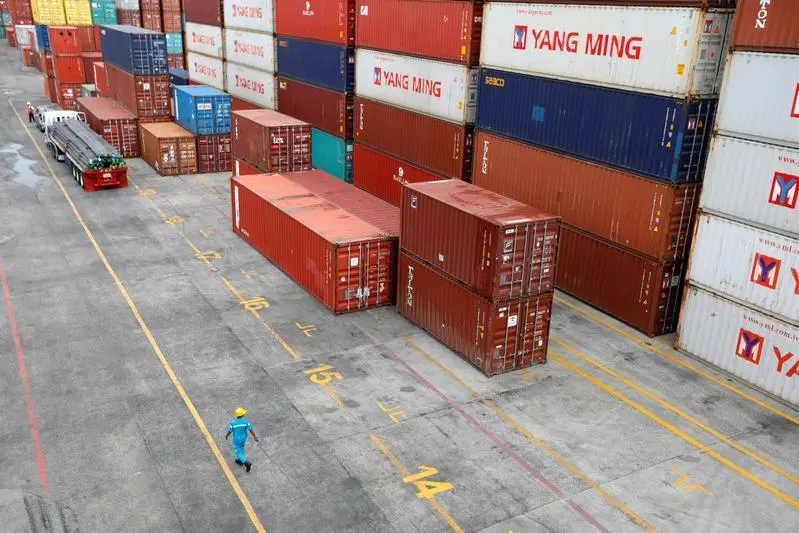PHOTO
Indonesia's September trade surplus beat forecasts at $4.99 billion, as exports and imports grew at a slower than expected pace, data from the statistics bureau showed on Monday.
A Reuters poll had expected a $4.84 billion surplus in September, compared with a $5.76 billion surplus in the previous month.
Southeast Asia's largest economy has been enjoying an export boom due to high commodity prices globally.
In the first nine months of 2022, the resource-rich country reported a $39.87 billion surplus, already bigger than its full-year record surplus of $39.73 billion in 2006.
However, some commodity prices have started to moderate.
Exports in September were up 20.28% on a yearly basis to $24.80 billion, compared with a 27.91% rise predicted by analysts in a Reuters poll.
There was a $1.4 billion month-to-month drop in the value of shipments of palm oil products, to $2.4 billion, reflecting falling prices as well as shipment volumes.
Cushioning this was shipments of coal, Indonesia's top commodity, which remained high at $4.2 billion.
Coal prices stayed near an all time high last month, while exports to China rose 41.2% on a monthly basis to $949.08 million - which analysts said was related to demand ahead of the Communist Party Congress.
There was also a significant increase in coal shipments to European Union countries.
Indonesia's imports increased 22.02% in September to $19.81 billion, compared with the poll's 31.48% growth expectation.
Irman Faiz, an economist with Bank Danamon in Jakarta, said the surplus reaffirmed that the rupiah's fundamentals were strong, even as the currency continued to depreciate due to capital outflows linked to U.S. monetary tightening.
The rupiah extended losses after the trade data, hitting a new lowest level since April 2020. It was trading at 15,480 a dollar at 0525 GMT.
"We believe that monetary policymakers need to pick up the pace of tightening, in order to seize the opportunity from favorable IDR fundamentals," Faiz said.
"We expect BI (Bank Indonesia) to deliver another 50 bps hike in this week meeting," he said, expecting that to be followed by 150 bps more hikes until the second quarter of 2023. (Reporting by Gayatri Suroyo, Stefanno Sulaiman and Fransiska Nangoy Editing by Ed Davies, Martin Petty)





















